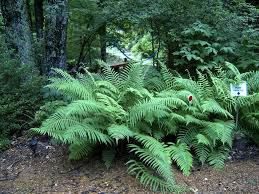Southern Shield Fern - complete detailed article
Southern Shield Fern - complete detailed article
History about Southern Shield Fern:
Southern buckler fern is one among the foremost graceful ferns within the woods. Its deciduous, soft-looking fronds make it one among the foremost appealing of our native ferns, and its very adaptable to the southern garden.
 |
| Southern Shield Fern - complete detailed article |
The botanical name is Thelypteris kunthii (pronounced the-LIP-ter-iss KUN-thee-eye). Thelypteris means "female fern." The species was named to honor the life and work of Karl Sigismund Kunth (1788-1950), a noted German botanist. Kunth classified plants that had been collected by Alexander von Humboldt and Aimé Bonpland once they traveled through America.
According to the USDA PLANTS database, its range is from North Carolina southward to Florida and westward to Texas. it's also present in Hawaii, Puerto Rico and therefore the Virgin Islands , perhaps because it arrived and located the islands to its liking. it's always found growing near the coast or streams.
Southern buckler fern is additionally referred to as Dryopteris normalis, Dryopteris saxatilis, Thelypteris macrorhizoma, Thelypteris normalis, Thelypteris unca, Southern buckler fern , Southern Wood Fern, Southern Maiden Fern, River Fern and Widespread Maiden Fern.
How to grow Southern Shield Fern:
You don't got to live near the coast to grow Southern buckler fern successfully. It tolerates short-term dry spells, and performs well in USDA climate zones 7 to 10.
 |
| southern shield
fern |
Choose a planting site in partial shade with moist soil, high in organic matter and well-drained with pH between 6.1 to 7.8. Take a soil sample to your nearby Cooperative extension for analysis. Follow the recommendations. Tilling won't be necessary.
Southern buckler fern grows to 36 inches high and 36 inches across. Dig planting holes about 24 inches to 30 inches apart. The holes should be no deeper than that of the basis balls. Water the plants in their pots, then plant them, watering more as you go. When planted, the tops of the basis balls should be visible; don't bury them under soil.
Southern buckler fern Fern is deer resistant. Like most other ferns, it's great in massed plantings and for naturalizing as a ground cover. Include it in fern collections, native plant collections, bog gardens, shade gardens and woodland gardens.


Comments
Post a Comment